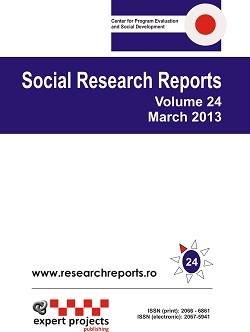INFORMED CONSENT VERSUS INVOLUNTARY HOSPITALIZATION IN PSYCHIATRIC PRACTICE. ETHICAL AND LEGAL APPROACHES
INFORMED CONSENT VERSUS INVOLUNTARY HOSPITALIZATION IN PSYCHIATRIC PRACTICE. ETHICAL AND LEGAL APPROACHES
Author(s): Daniel Rădoi, Mihaela RădoiSubject(s): Social Sciences
Published by: Expert Projects Publishing
Keywords: ethics; informed consent; involuntary hospitalization;
Summary/Abstract: From its beginnings as social practice, medicine has always been confronted with ethical dilemmas. Ethical issues are brought into discussion mostly when the patient lacks awareness, when he does not understand, which means that he also does not accept the disease. In order to solve these dilemmas, the physician has to combine norms, habits, customs, religious beliefs and, first of all, legal standards specific to his space of action. Psychiatric diagnosis, especially, determines multiple ethical issues, from involuntary hospitalization to therapeutic methods. As it results from the Universal Declaration of Human Rights (art. 1, 3), the fundamental rights of a person are based on the acknowledgment of his human status, that all human beings are born free. Since the autonomy and responsibility of each person – including of the one who needs healthcare – are accepted as important values, his involvement or participation to the decision-making process regarding his own body or health must be acknowledged as a universal right.
Journal: Social Research Reports
- Issue Year: 5/2013
- Issue No: 24
- Page Range: 39-50
- Page Count: 12
- Language: English

